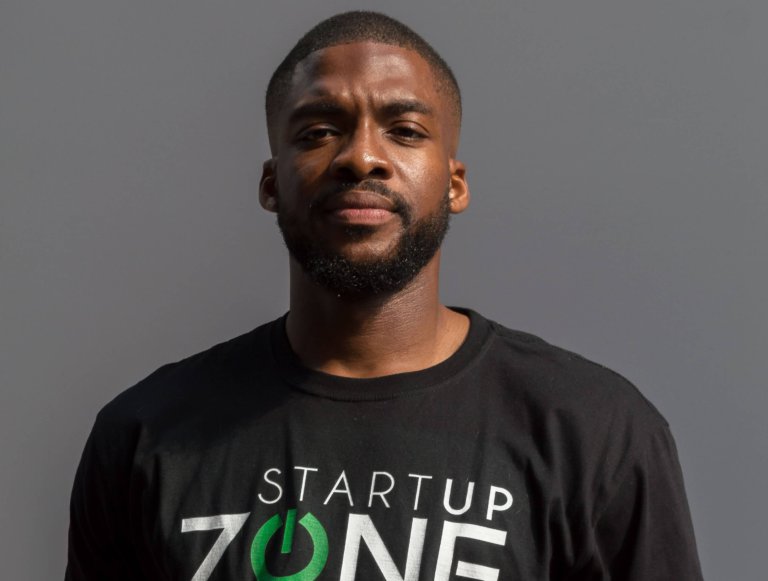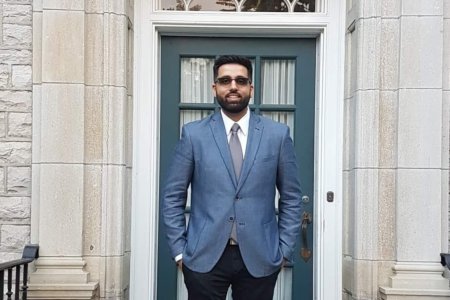
Canada is the first country, Daniel Ohaegbu, 24, has ever travelled to outside of his home country Nigeria. He calls it home today, but it wasn’t always a walk in the park for Ohaegbu from the moment he stepped off the plane.
International students face contemporary racism here, says Ohaegbu. “It comes in the form of assumptions. Assuming you know about an individual’s intellectual capacity or ability to perform. For example, a question people like to constantly ask me is my ability to command the English language so well,” he explains.
Spurred to do something about this, he founded several organisations to advocate for more diversity and inclusion among Canadian society and businesses that would positively impact international students. “I’ve always felt the obligation to advocate for international students dealing with financial struggles and racism — in particular the black community,” says Ohaegbu, who has since graduated with a BA in Psychology from University of Prince Edward Island.

With projects like Overtime Entertainment, MICC Financial, and ASDA, Ohaegbu is on his way to increasing diversity and inclusion in Prince Edward Island and beyond. Source: Daniel Ohaegbu
Diving more deeply into Ohaegbu’s life experiences, we speak to this graduate at the University of Prince Edward Island (UPEI) via a Zoom call. He tells us more about his life in Canada, and how he advocates for international students:
Let’s start with your early years in Canada, tell us more about your experience. Why switch from Biology to Psychology?
I moved to Canada in 2013 but I couldn’t start school because I was three weekends late for the September semester. When I finally did arrive, I made the decision to stay in Mississauga where I attended a university prep college before I could finally join the University of Prince Edward in 2014.
As a young child, I’ve always wanted to be in the medical field, helping people and saving lives. Coming from Nigeria, being a doctor was the only way to do it. However, one summer I ventured into psychology, and my strong mindset to pursue biology was overturned. Psychology just felt more natural to me, I felt more connected to it, so I continued my undergraduate studies in Psychology, and then moved on to my BA.
Dr. Colleen MacQuarrie was the catalyst on this change of career path, with all the support, foundation and insight I needed to perceive the world in a better light. I feel very grateful to her, because she helped me grow my own voice and speak out more. I was then able to do some research to work on my publication researching some of the struggles international students face.
You mentioned contemporary racism in Canada, can you tell us a bit more about that?
Canada hasn’t been the easiest path for me. When I say “contemporary racism,” I mean the new face of racism, not the very obvious kind. In my opinion, this type of racism comes in the form of making assumptions on how you perceive individuals.
It’s not exactly as harsh as the things we see about in the news, or how badly people are treated because of where they come from, or what they look like, and so on; but, there is always still room for improvement.
Can you give us an example of contemporary racism you’ve experienced in Canada?
Upon arriving, I applied to be a volunteer at a hospital in Prince Edward Island with one of my best friends Obi, who just finished his Master in Pharmacy. I really wasn’t conscious of the underlying layers of racism in Canada I would have to deal with.
I remember that time volunteering, and how the lady would keep bringing up the fact that Obi and I were tall, black and most probably into sports, like basketball. After having a polite debate on being singled out, I didn’t get the job.
I added this incident to my research and continued investigating similar events happening at the university. The whole prospect of simple generalisation of a group of people happens everywhere, and sometimes this leads to mental health issues.
What projects are you working on to help underrepresented communities and racism in Canada?
As a consequence of my experiences, I’ve taken on three projects. Overtime Entertainment was founded in our university years and basically entails organising a lot of events promoting diversity and inclusion to provide a space for international students who are visual performing artists.
The second project is MICC Financial, co-founded by my partner Jonah Chininga, and is a peer-to-peer collaborative platform that helps individuals build credit, access capital and save money to reach their financial goals. This stemmed from our own experience as international students, never having the financial accessibility and support regarding student loans.
ASDA, the third project, came from my thesis research into the experience of international students. We basically work with institutions to recruit and train students with industry-based skills so we can bridge the gap between an employer and an international student. A lot of work goes into this — building databases on skill shortages, labour market shortages, and from there creating curricula that match.
Research shows that diversity in a workplace increases productivity — this inspires me to continue my work. The team is small, but between us, we’ve built resilience over the years serving our communities. The dream is to make a big impact and achieve our goals.

Helping those in need, Ohaegbu is an inspiration in standing up for underrepresented communities. Source: Daniel Ohaegbu
What advice do you have for international students looking to study abroad?
I want international students to know that they bring value, substance, social and financial capacity to whatever country they’re going to. It may often seem the other way around, but it’s not.
My advice would be to create networks, get out there and build relationships. Put yourself through challenges so you can learn and grow. Canada is actually a great place for international students in a sense that they create resources to keep and maintain a diverse community.
I find that people are really receptive if you reach out to them, so if you have a chance to serve your community, take it. Also be proud of where you come from, but keep your views open and look out for other international students.
This interview has been edited for length and clarity.








